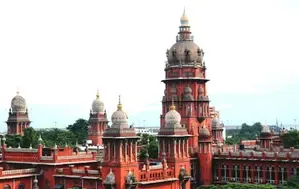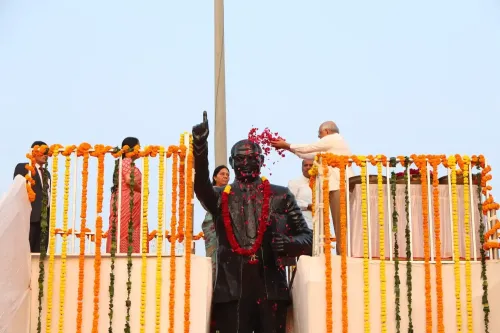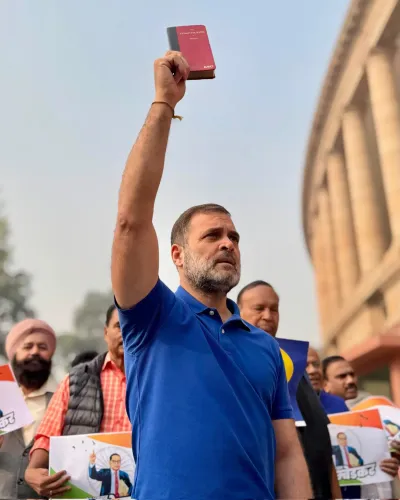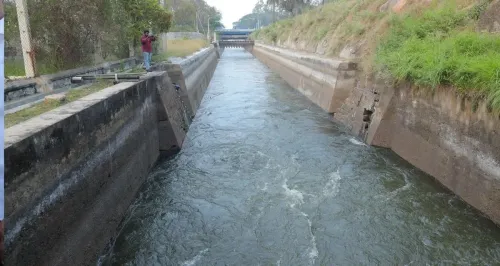Madras High Court Mandates Audit of TN Victim Compensation Fund in Central Prisons

Synopsis
Key Takeaways
- Audit mandated for Tamil Nadu Victim Compensation Fund.
- Deadline for report submission set for January 30, 2025.
- Concerns raised regarding misuse of funds and prison official corruption.
- Petition filed for reinstatement of privileges for life-term convict.
- Ongoing investigations by Directorate of Vigilance and Anti-Corruption.
Chennai, Jan 21 (NationPress) The Madras High Court has mandated that the Tamil Nadu Accountant General (AGTN) assemble a team of 10 officers to conduct an audit on the use of the Tamil Nadu Victim Compensation Fund across all eight central prisons within the state.
The court has requested that the audit team present its findings by January 30, 2025.
The order was delivered by a division bench featuring Justices S.M. Subramaniam and M. Jothiraman while addressing a writ petition initiated by M. Deepalakshmi from Virudhachalam, located in Cuddalore district.
In the proceedings, the court identified the AGTN as a party in the case. Deepalakshmi filed the petition on behalf of her husband, Mudikondan alias Senthilkumar, who is serving a life sentence for a murder conviction from 2015, a ruling that was later upheld by the Supreme Court in 2018.
She argued that her husband, who had previously enjoyed ‘A’ class privileges in prison due to his former roles as a panchayat president, an income tax assessee, and a social worker, had these privileges unexpectedly revoked three months ago.
Additionally, she noted that even the newspapers provided to him were subject to censorship to restrict access to news regarding the prison and court.
The petitioner's attorney, P. Pugalendhi, contended that 20% of inmates' earnings are deducted to enhance the Tamil Nadu Victim Compensation Fund. However, he claimed that the fund was not being utilized effectively for supporting victims of criminal acts.
Deepalakshmi sought the reinstatement of ‘A’ class privileges for her husband and an inquiry into the fund's proper management.
Earlier in the month, on January 8, 2025, the same bench had voiced serious concerns regarding allegations of corruption and misconduct among prison officials, including document forgery.
The bench criticized the state government for not taking decisive action against the implicated officials, asserting that the misconduct of prison authorities was more severe than that of the inmates.
“The goal of prisons is to rehabilitate offenders. When prison officials partake in criminal behavior, it constitutes a severe breach of trust and duty,” the bench stated.
During a previous session, the petitioner's attorney pointed out reports of financial discrepancies in the Madurai Central Prison, including fund misappropriation and other illicit activities.
The Directorate of Vigilance and Anti-Corruption (DVAC) had initiated a preliminary inquiry, registered FIRs, and commenced disciplinary actions against several implicated officials.
The Additional Advocate General (AAG), J. Ravindran, submitted reports on behalf of the Home Department, outlining the findings from the DVAC investigation.
The inquiry uncovered that stationery worth ₹1.64 crore had not been delivered to government departments, with prison officials allegedly misappropriating these funds.
Three officials from the Madurai Central Prison—former superintendent M. Urmila, jailer S. Vasantha Kannan, and administrative officer S. Thiyagarajan—were reassigned, and legal action was initiated against them.
The DVAC Inspector in Madurai also provided updates regarding the ongoing investigation. The court’s orders underline the necessity of ensuring accountability and transparency in managing prison funds and the welfare of both inmates and crime victims.









